It's scary how fast time as flown by since living and working undersea. Only one day left on Mission 31 and there's so much we'd like to do! In a way, feel like we're just getting started. The research, ocean outreach, great people involved and connected with Mission 31, and experience exploring the ocean have been fantastic.
I was asked, "Have you been scared underwater?"
1. Spooked, but Not Scared
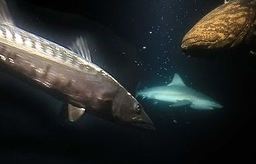 Baraccuda, shark, grouper. Credit M31
Baraccuda, shark, grouper. Credit M31 A reporter just asked if I've encountered anything scary on Mission 31. The answer is that I haven’t felt scared; but I have been spooked. I was in the water for over an hour setting up the Edgertronic camera, focusing so intently on the scene we were filming that I didn't notice day had changed to night. When I looked up, it was pitch-black around me. I shined my dive light to my left, and a reef shark brushed right past me! I was spooked, but not scared. We are always in communication with our support teams while diving via the communications line in our helmets, and are trained to deal with any sort of emergency. We also run through a checklist before every dive. I always feel safe down here. I also had a staring contest with a barracuda on one of my first Mission 31 dives.
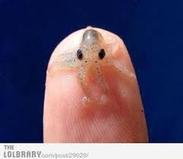 I'd like to meet this tiny octo.
I'd like to meet this tiny octo. Last summer I was working on a robot for NOAA in Hawaii and was scuba diving with a few friends there. We were about 20 ft. underwater. One of my friends is a marine biologist, and while we were swimming, I turned around and there was an octopus (about the size of a scuba tank) wrapped around him! My first instinct, of course, was to freak out! But I looked at my friend, and he looked so peaceful. He was playing with the octopus. The octopus was on him for a couple of minutes and then he swam away. It was one of those moments where you learned to balance emotion and logic. (Learn more about the amazing octopus in my blog.)
2. Scared, but Hopeful
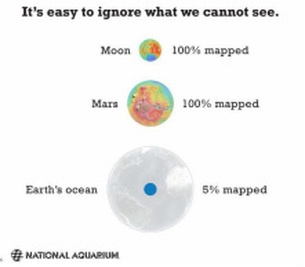 95% of our ocean is unexplored.
95% of our ocean is unexplored. In general, my greatest fear is that we’ll destroy many of our fragile marine ecosystems before we even know they exist, or have learned what they can teach us. As I said in our Mission 31 chat from Aquarius with National Geographic, "I find it incredibly frightening that we have the technology to completely destroy the ocean in my lifetime." The oceans are mankind’s life support system. They produce up to 70% of our oxygen, absorb huge amounts carbon dioxide that would otherwise asphyxiate us, filter vast quantities of natural and man-made toxins, and provide essential food for billions of people. Yet we know more about the dark side of the moon than we do about two-thirds of our own planet! We know our survival depends on the oceans, yet we’re killing them with overfishing, pollution, and acidification cause by greenhouse gases, not to mention the implications of rising temperatures. Based on current trends, experts believe all marine life will become extinct in my lifetime unless we start managing our oceans better -- now.
"We have to start with knowledge; there is so much more to learn and discover about our oceans."
How much plastic is in the ocean? Way too much. This infographic by One World One Ocean explains. We can do simple things, like reuse and properly recycle. We can also ask if the plastic we're using is necessary, such as straws.
Here's an earlier post from my blog: Hey, now you can buy clothes made from that plastic that's polluting the ocean.
Here's an earlier post from my blog: Hey, now you can buy clothes made from that plastic that's polluting the ocean.
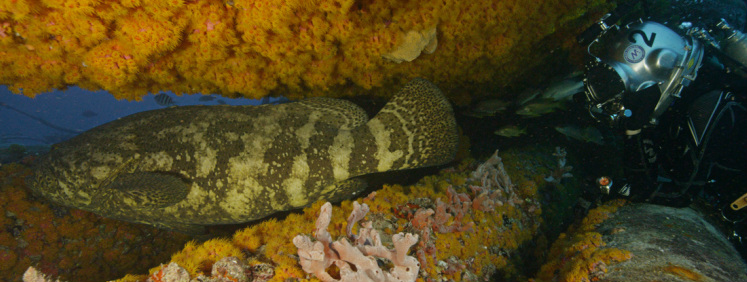
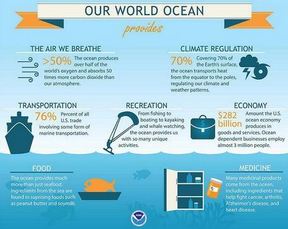
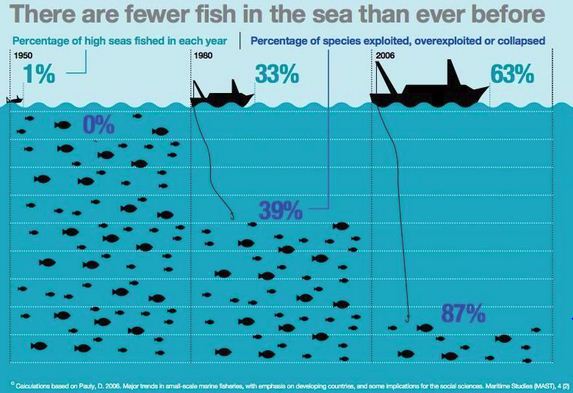
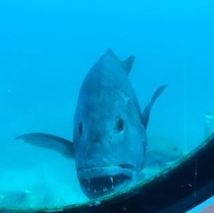
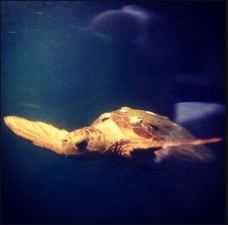
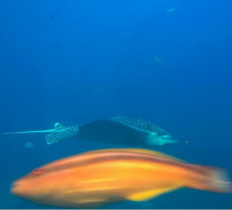
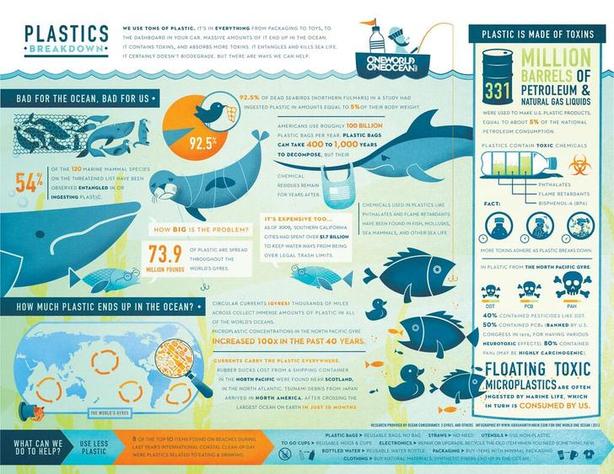

 RSS Feed
RSS Feed
